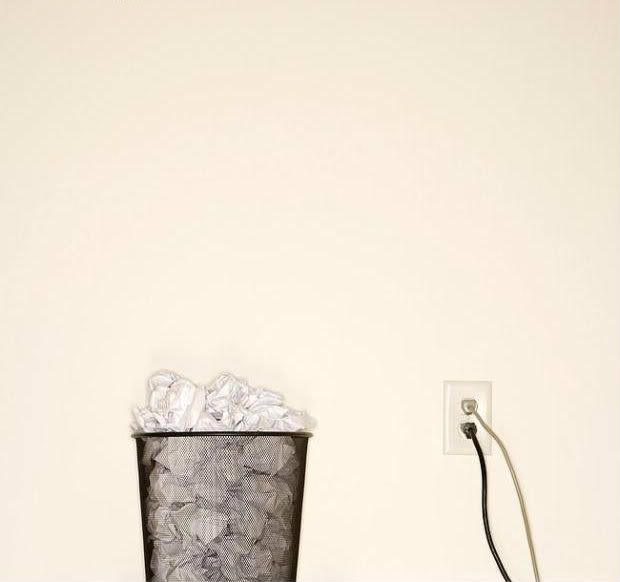1) The first chapter is almost reality, about me, and I ultimately married the federal agent.
2) I threw the entire manuscript away and started over . . . twice.
You read that right. I put time between the first draft and me, and when I picked it back up, I realized it stunk . . . big time. All first drafts stink. Let me repeat that. All. First. Drafts. Stink.
You are NOT the exception. Chances are, your second draft stinks, too, just a little less so. I threw away that second draft, too.
All. First. Drafts. Stink.
You have to get over the fact you've invested months, if not years, in those first two drafts.That's your growing, learning, struggling phase anyway. What artist wants to flaunt those early sketches, where he couldn't get the hands quite right or the eyes don't match? Bad hands and disproportionate eyes are in your first drafts. You just might be too blind to see them.
But you have so much good material in all those pages. Yes, you do. But it's hidden amidst the nasty stuff, and if it's too close to the nasty, then you tend to reach over and snare some of that, too. Here's what I suggest you do.
1) Print off the pages.
2) Read the draft.
3) Write an outline of the story as you read.
3) Mark the very good, most excellent lines and save those pages.
4) Throw away the other pages. Do not ever read them again! It will be tempting to save them, but don't.
5) Open a new, blank page on your computer and start the new story.
There's nothing sacred about old material.
Why the above routine? This is why:
1) By having all these random pages with great lines on them, you'll save what you glean as diamonds, but won't just rewrite what you already did. You're forced to write the scene around those glistening sentences of brilliance. The funny part of this exercise is this . . . those wonderful sentences won't feel quite as perfect anymore, and chance are you'll rewrite them as well. That's a good thing. After all, you're growing as a writer.
2) My first and second drafts were in another setting, in third person. By discarding the old material, I pondered changing the setting, abolishing a few secondary characters, and changing to first person. Working amidst the old stuff, you might not be free enough of it to see the opportunity for really big change!
3) Note that no reference is made to the electronic file of the old draft. Delete it. I did. It kept me from going back to it, tempted to cut and paste sections on the days I was tired and less creative.
You want to be remembered for your polish, your published material, your best stories.
I know this makes your stomach hurt and your head throb. What a waste! No. It's a wonderful step for you. Most writers don't have the guts to do it! And that's what's going to move you a step above the fray. This is what will make you a much, much better writer. And this will teach you that you are an endless source of words. There's nothing sacred about old material. Nothing. You should be ever moving forward. Why leave a legacy of practiced product and half-assed results? After all, you want to be remembered for your polish, your published material, your best stories.

5 comments:
Hope, I always get so much out of your blog posts! I agree about the first drafts being awful, too. And about how long it takes to write a great book. I had the dream to write my memoir for so long and by the time I'd thought about it off and on, and actually wrote it off and on, 10 years went by. I certainly don't recommend that route to anyone! But I HAVE learned so much along the way. If I would've gone with my first, second, third, etc...drafts, it would've really stunk. Thanks for all your wonderful advice!
Sue Burke, a successful science fiction writer and friend of mine, uses the concept of the "zero draft". This is the draft you write first. It doesn't really exist. Nobody is going to read it because it's not worthy of being read. Get your thoughts and mistakes down on paper, then write another, better draft to show your critique partners.
yes, this hurts to read. But, it is so true. I don't know how many times I've said I was going to quit writing. But, thankfully I have said 'no I'm not' those same amount of times and kept on writing.
Yes, first drafts stink, but the gems that are in that "compost" are worthy of retrieval.
I love Sean's reference to "zero drafts." A ghost draft. A nonexistent draft (and hopefully they will remain so).
I like that zero drafts reference as well. It doesn't count! It's like warmup for a race.
BTW, could I convince you guys to move to the other blog location? http://chopeclark.com/blog/ I'm posting on two blogs to give people time to move from here to the other. Thanks!
Post a Comment